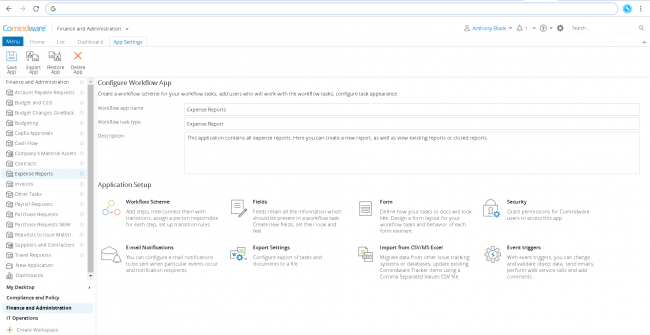The world of business is changing quickly before our very eyes. New technologies that are revolutionizing and redefining the ways we manage every aspect of business are now common and some of these technologies are changing what it means to even work. There have been dramatic advances in machine learning, artificial intelligence, and the like, which has led to the development of a wide array of powerful automation tools that streamline business processes and reduce error.
In today’s incredibly competitive environment, any sort of “leg up” is vital to success. Highly successful businesses, in any industry, are those that are flexible and adaptable to changes in technology and even the way people interact to perform their daily work. To create the successful work environment of the future, one must take into account these new technologies and determine how they can best be implemented into one’s specific business process flow to provide the best results.
Tomorrow’s workplace
One of the most difficult, but also most important, parts of business planning is determining what one thinks the future of the business will hold. While, of course, many aspects of this cannot be accurately predicted, some trends give us a good clue as to at least some of the changes we can expect.
An area of change that we can pretty accurately assume will be the norm of the future is the digital workplace. During the Covid-19 pandemic, many people have had to learn how to do their job remotely, from home, and this requires the use of new technologies that can allow for this to happen. Additionally, business process management and workflow automation technologies are sophisticated and powerful tools that can streamline various business processes, utilizing machine learning and artificial intelligence, along with the ability to manage basic data entry and other repetitive tasks.
This calls for employees that are flexible and able to learn new skills and technologies as they are introduced into the workplace. A dynamic workforce that can change with the needs of the time is imperative to the successful business of the future.
Design workflow apps and digital workplace with drag and drop simplicity and adjust them with easy when needed.
Decentralized centralization
The name of this section may, at first, seem to make little to no sense, but stick with us for a minute. With an increased reliance on technology and remote working, the future of business will be one the one hand largely centralized. What this means is that there will be a core of the business where all processes are managed and assigned, as well as the main work hub that employees will do their work. The decentralized part refers to the employees.
As the pandemic has shown many of us, the business can often be run remotely and there are many practical advantages to doing so. In the future, many expect more and more job positions to be done remotely, from home, meaning that employees are decentralized in their literal location as they do work, but they are centralized in that they are all working in the same workspace, managed by the same group of people.
While this will present some challenges and, of course, a learning curve, it is the direction more and more businesses are moving towards. The workspace that people can access remotely needs to be comprehensive and adaptable as well. Workflow technologies and other automation tools that can integrate with other software can help reduce the number of different applications that must be run to complete a process, further simplifying things.
We must embrace automation
A lot of businesses have successfully integrated at least some automation software into their business, most often in areas where manual data entry is key. However, as artificial intelligence and machine learning improve, automation software can handle more and more complicated tasks. Machine learning tools, as the name implies, learn over time from performing various business processes, making them more like a fellow employee than simply a piece of technology.
As these tools continue to improve, they can handle more complicated and sophisticated tasks that reduce the need for manual human entry and management and can free up human employees for more creative and innovative pursuits within the company.
In summary
As the way we work continues to evolve, business owners and managers have to find ways to adapt and stay ahead of the proverbial curve. While the future of business cannot be predicted, there are some aspects of it that we can prepare for, such as the increased use and reliance on automation technologies and the digital workplace. These tools will help create a sophisticated and powerful workspace that allows employees to manage their tasks, even if they are working remotely. Workflow management software can help a lot with quick business processes automation and building a foundation of a digital workspace that would boost your employees effectivity, whether working in the office of remotely.

